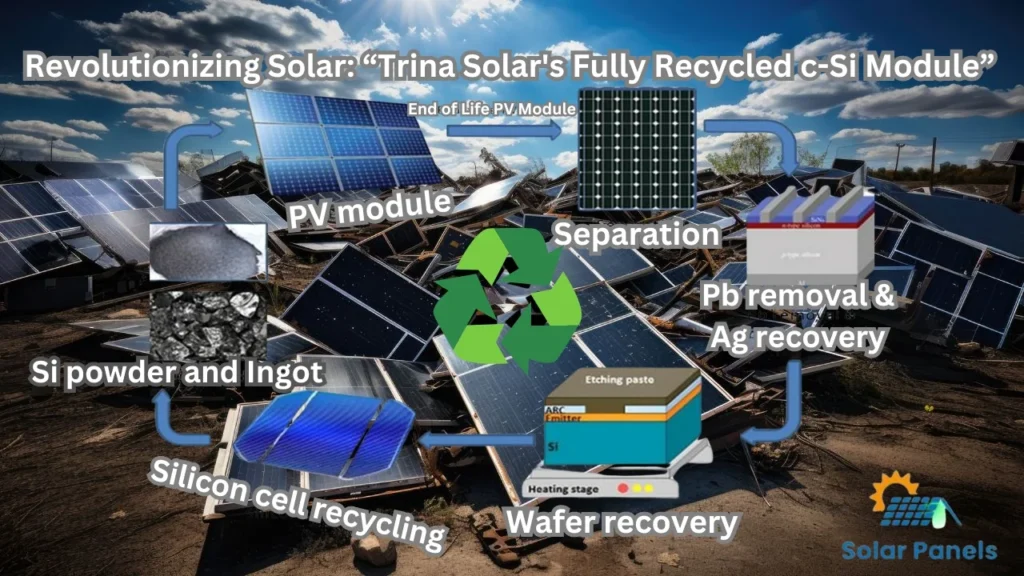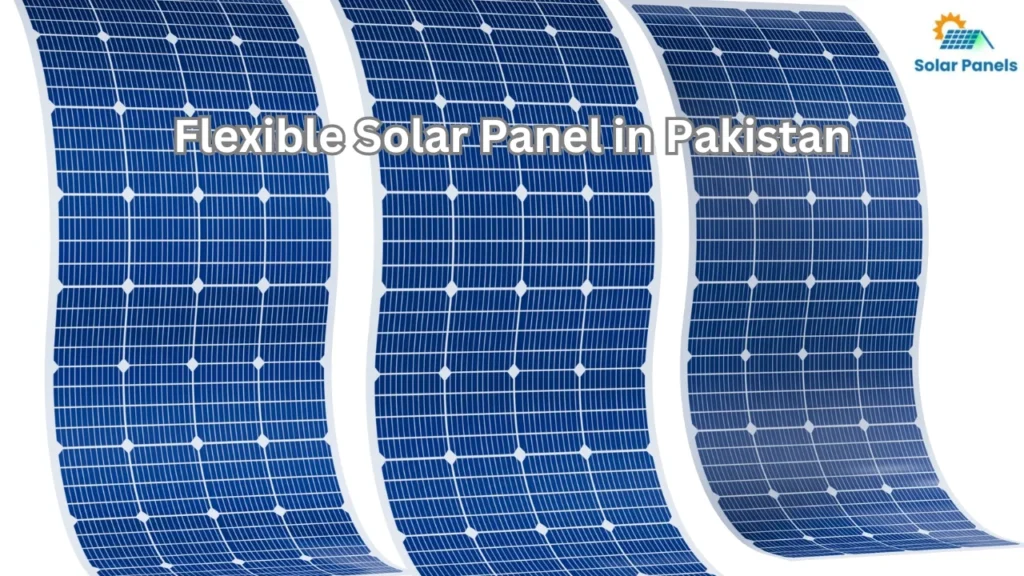Revolutionizing Solar: “Trina Solar’s Fully Recycled c-Si Module”
Trina Solar is a leading global supplier of photovoltaic and energy storage solutions and has recently announced that it will start producing the world’s first completely recycled c-Si module.
Table of Contents
ToggleThis breakthrough was achieved by Trina Solar Research Center Academy, using materials such as silicon, chips, aluminum frames, and glass recovered from disused modules. This is a significant breakthrough for the industry and sets Trina solar ‘s position as a pioneer in maintainability inside the industry.

Recycled photovoltaic modules
The manufacturing of the world’s first recycled photovoltaic (PV) module was led by Trina Solar in collaboration with key partners along the supply chain. This process has enabled the company to recover high-value materials from disposed solar panels and repurpose them efficiently.
Different innovative techniques achieved this, including the use of interlayer division reagents (a self-developed technique), chemical carving technology, and wet carving silver extraction technology. The recycled module uses n-type TOPCon technology and has an optimized plan, achieving an efficiency of 20.7% and a power of more than 645 W.
Gao Jifan, Chairman and CEO of Trina Solar said
Gao Jifan, Chairman and CEO of Trina solar and Chief of the Central R&D Institute, said that this achievement reflects Trina solar’s firm commitment to the maintainable improvement of the photovoltaic industry and its contribution to the global energy transition.
Trina Solar is committed to developing advanced technological solutions to recover and recycle used PV modules, not only complying with international standards such as the European Union’s Waste Electrical and Electronic Equipment (WEEE) Order but going even advance by developing its technology. The company has connected for 37 licenses in the field of module recycling.
Trina Solar manufacturing processes
In addition, Trina Solar looks to reduce the natural impact of its manufacturing processes. The company has been a part of the PV Cycle since 2010 and has developed a number of compliant methods for arranging PV modules at the end of their useful life to reduce natural pollution.
Their breakthrough in module recycling technology not only offers a key solution for the mass destruction of PV modules but is also an example of what is possible in the PV industry. If you want to learn more about solar panels, our blog section is a great place to go. READ MORE:
Photovoltaics Renewable Energies
Photovoltaics is one of the renewable energies that is having the greatest arrangement in our nation and in the whole world, given the need to decarbonize the electricity production system. And energy storage is the perfect complement to this source since it is cyclical.
Conclusion:
Trina Solar has introduced the world’s first fully reused c-Si module, a significant step in the photovoltaic industry. This innovative approach not as it were improves efficiency and control output but also sets a modern standard for natural stewardship in solar manufacturing. As the request for renewable vitality solutions develops, Trina Solar’s panel efforts demonstrate how the industry can advance toward a more maintainable future. Clearing the way for far-reaching selection and development in solar technologies.
FAQ’s:
A fully reused c-Si module represents a solar panel that manufacturers produce entirely from recovered materials from disposed solar panels. This includes silicon, aluminum frames, and glass, ensuring minimal natural effect during production.
This activity helps decrease waste from old solar panels, recycles important materials, and decreases the natural footprint of solar manufacturing, adjusting with global sustainability goals.
Trina Solar follows international measures such as the European Union’s Squander Electrical and Electronic Equipment (WEEE) Order and actively works to progress its recycling technology past these requirements.


